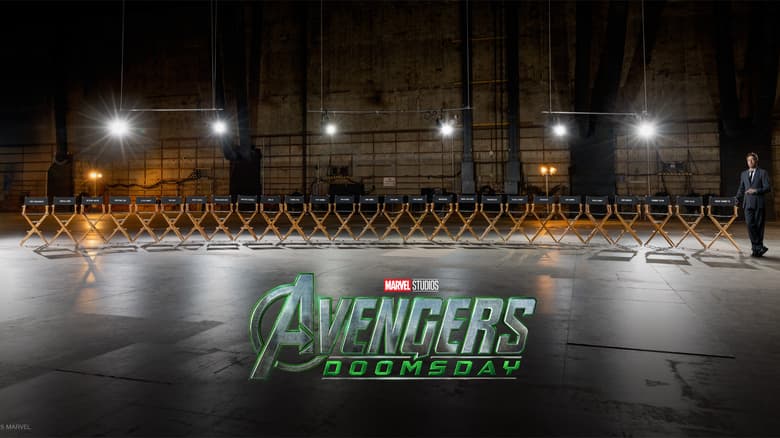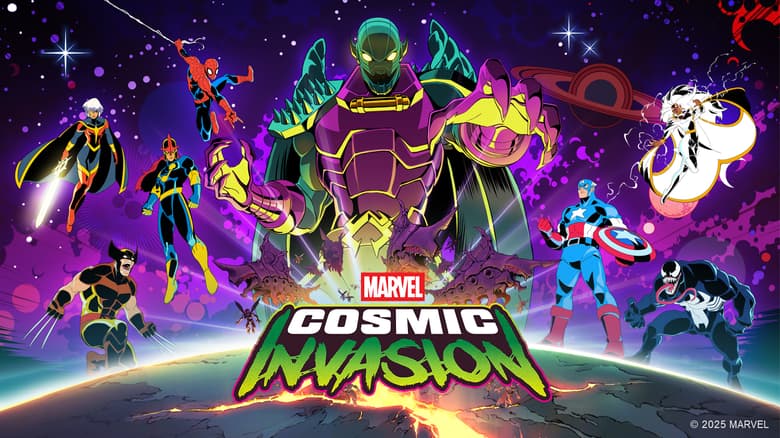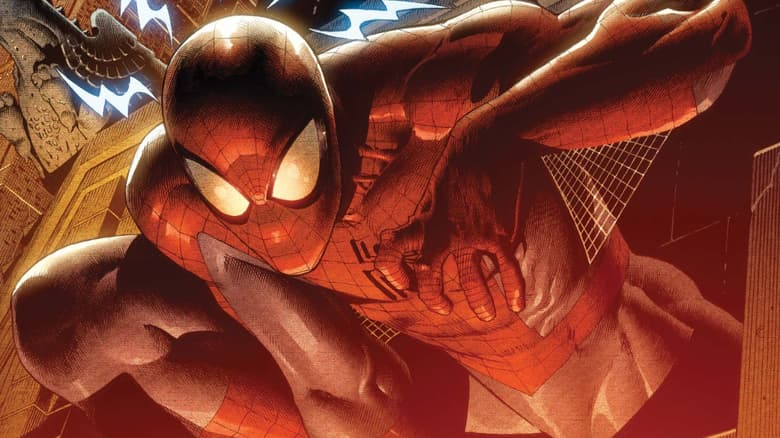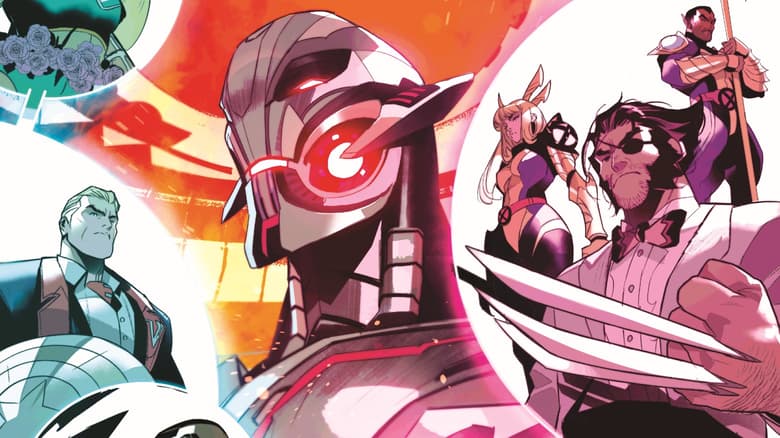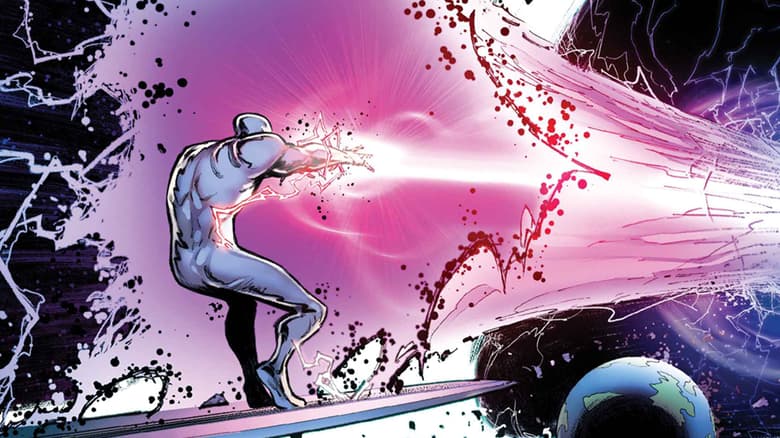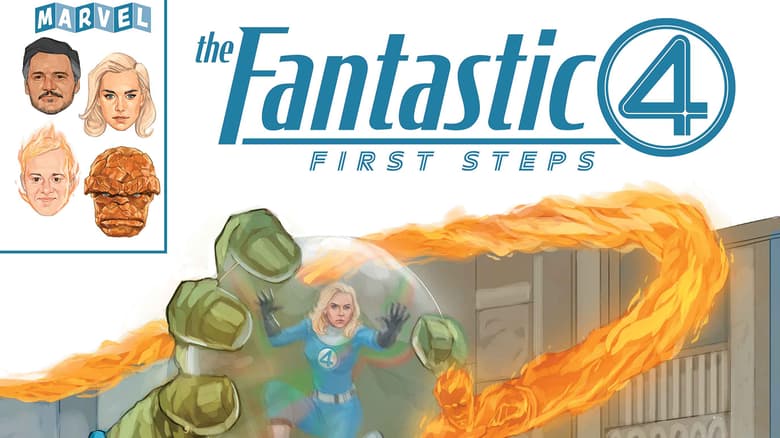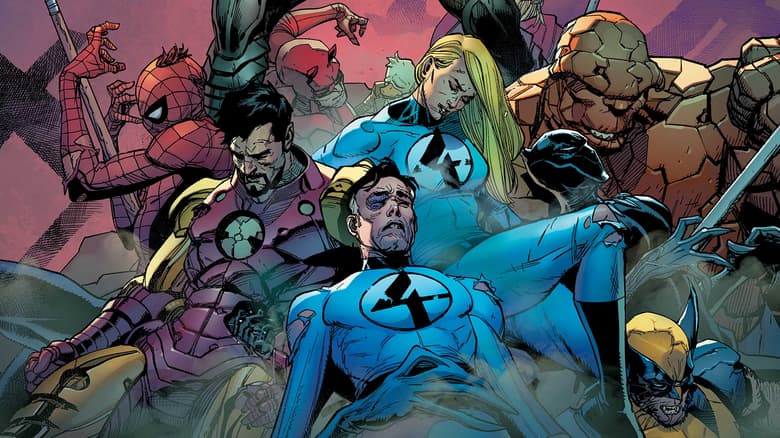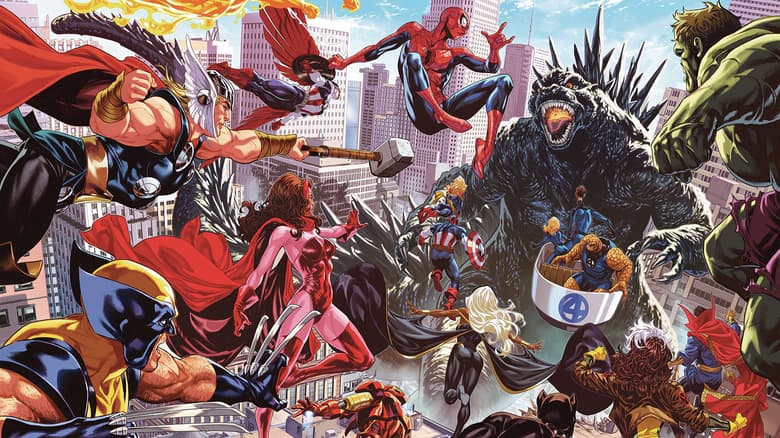Celebrate Marvel's First Family with FANTASTIC FOUR: THE FIRST 60 YEARS
Explore the Marvel comic's legacy decade by decade in deluxe format from Titan Books, on sale now!
Back in 1961, Stan Lee had a revolutionary idea for a new comic book. A dysfunctional family who get powers thanks to some pesky cosmic radiation. This stunning idea brought to live in sci-fi comics glory by the legendary Jack Kirby laid the groundwork for the Marvel Universe as we know it today. To celebrate this stunning legacy of over 60 years, Titan Books is proud to present FANTASTIC FOUR: THE FIRST 60 YEARS, on sale now at Amazon, Barnes & Noble, Books-A-Million and wherever books are sold.
This deluxe volume explores the Fantastic Four’s adventures decade by decade as they battle foes including Mole Man, Galactus, and the fearsome Doctor Doom. With vintage art from the Marvel vaults and profiles of the creators behind these iconic characters, this special tribute presents a unique guide to Marvel’s first family.
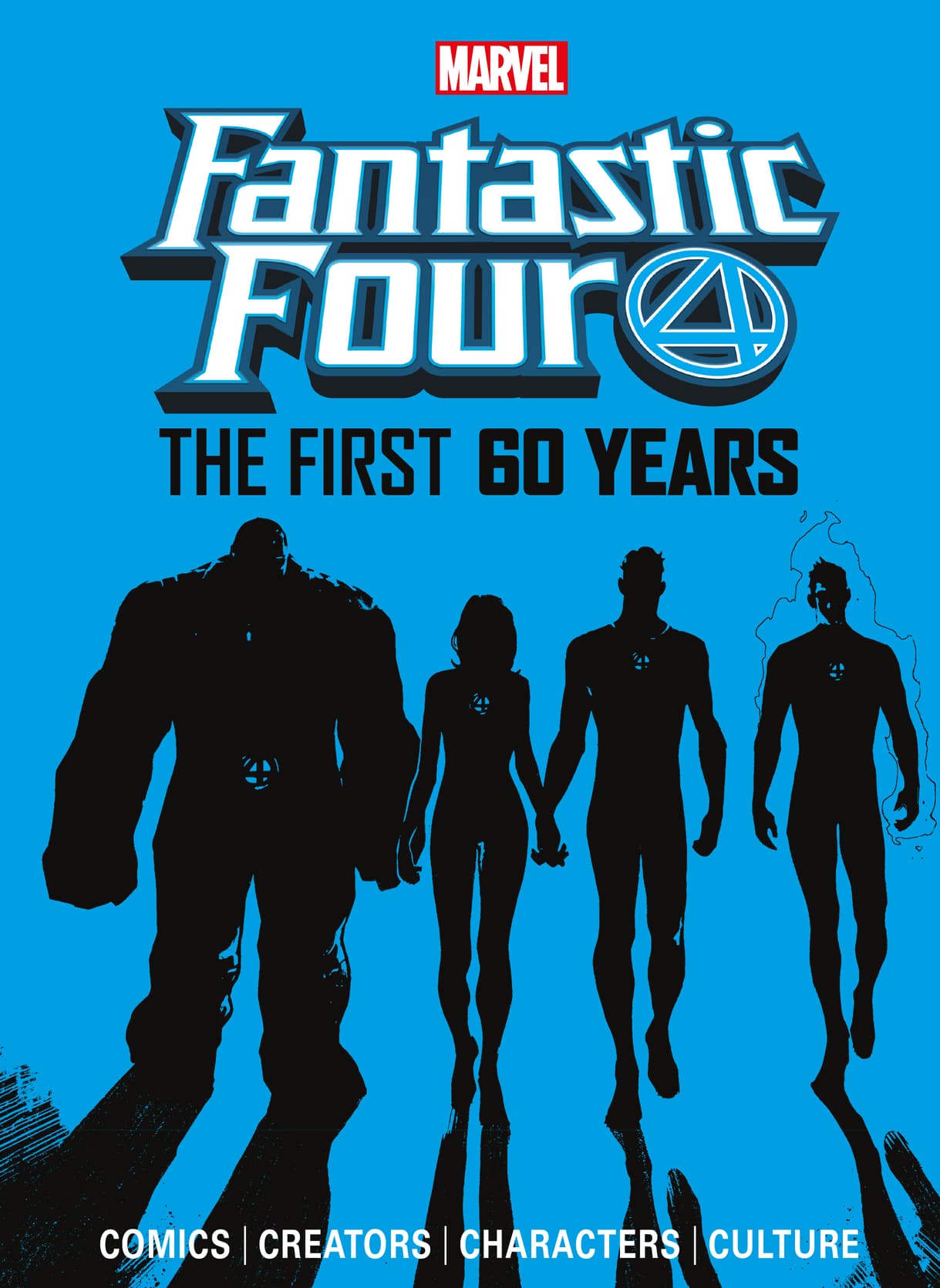
The fine folks at Titan Books were kind enough to provide an excerpt from FANTASTIC FOUR: THE FIRST 60 YEARS for you to read here on Marvel.com. Let's turn back the clock to the mighty moment in Marvel history, for Reed and Sue's wedding...
REED AND SUE GET MARRIED AND THE GOLDEN AGE BEGINS
Issues #39 to #43 are considered transition issues, at least from an artistic point of view, with inkers Frank Giacoia and Vince Colletta assisting Jack Kirby for a short period. Narratively speaking, this was an extraordinary period. The Fantastic Four met Daredevil in the epic story “A Blind Man Shall Lead Them”, the Baxter Building became a battlefield, and Lee and Kirby broke free of the 20-page format. As 1965 raced on, it was time for the FF to make some big life choices and Reed and Sue got married in Fantastic Four Annual #3 (1965). One of the most memorable stories, it featured not only Spider-Man, the Avengers, Hulk, and all the other heroes, but also all the Super Villains.
From that moment on, Fantastic Four proved that the “World’s Greatest Magazine” tagline on its cover wasn’t just an empty boast. Issue #44 was the start of a long saga that featured (in order) the Inhumans, Galactus, Silver Surfer, and Black Panther, then Him (the future golden hero called Adam Warlock), Wyatt Wingfoot, Sentry, and Blastaar, not to mention an increasingly three-dimensional Doom. It was a compelling story – adventurous, romantic, political, religious, and cosmic – that ended with issue #67 of the regular series and with Fantastic Four Annual #5 (1967)
In this run Sinnott’s magic brush added depth and space to Kirby’s pencil drawings, which stayed solid but had become more sinuous, elegant, and modern. Sinnott and Kirby would only meet in person in 1972 but they managed an incredible artistic collaboration without even talking on the phone.
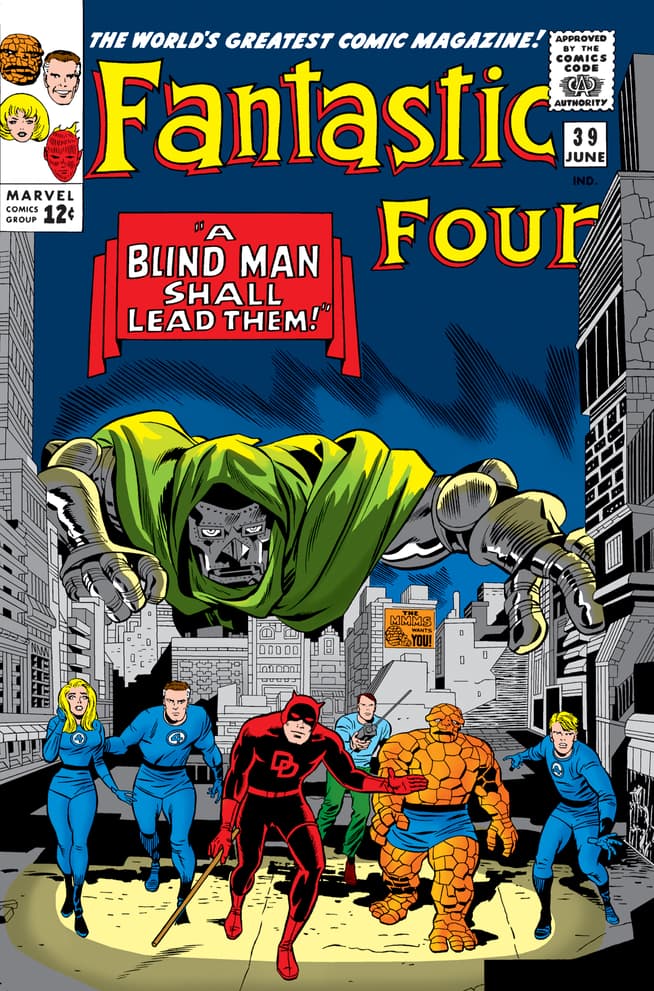
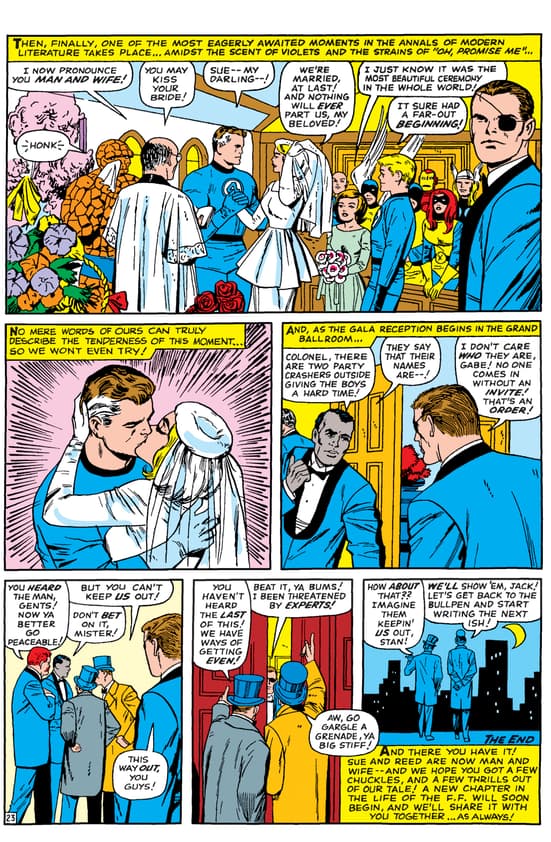
Time to strap on your seat belts. With issue #44, readers were pulled into a vortex of “fantastic” adventures without a second to breathe. In just a few pages, Lee and Kirby introduced characters, situations, and worlds that still populate the Marvel Universe today. It stated with the arrival of the Inhumans, a genetically superior species that had arisen from experiments on homo-sapiens conducted by a warrior alien race called the Kree (whose heroic Captain Mav-Vell would clash with the Skrulls in the following decades). The Kree’s experiment seemed to have failed. But the Inhumans, who had fled to Attilan, the “Great Refuge” in the peaks of the Himalayas, organized their society according to a rigid caste system, and, after their exposure to the Terrigen Mists, they developed superhuman powers.
These characters were almost disturbing for younger readers, but they were certainly compelling. Medusa had already encountered the FF, and she was joined by Gorgon, whose animal hooves could generate shock waves; Karnak, the unbeatable martial arts master; Triton, the amphibian; and their leader Black Bolt, the mysterious and noble King sworn to silence, for a single spoken word could destroy a mountain.
With the Inhumans was the “family dog” Lockjaw, who had the power of teleportation; their unhinged power-hungry cousin Maximus; and the beautiful Crystal, who could control the elements (and with whom Johnny would soon fall in love). This royal family was suspicious of humanity and yet had all the complexities of human emotions, in perfect Marvel fashion.
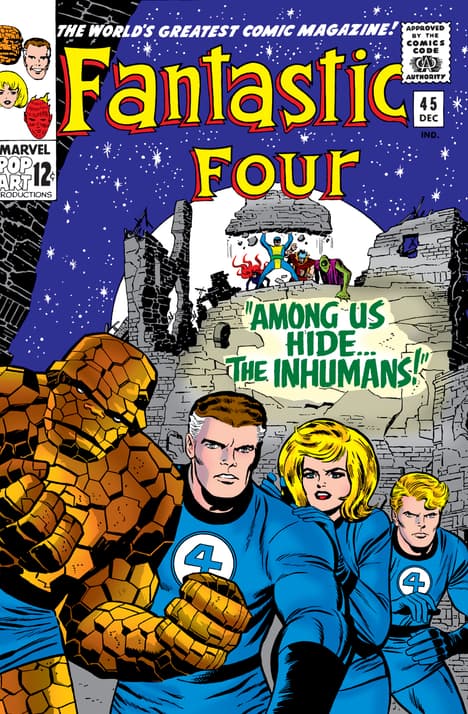
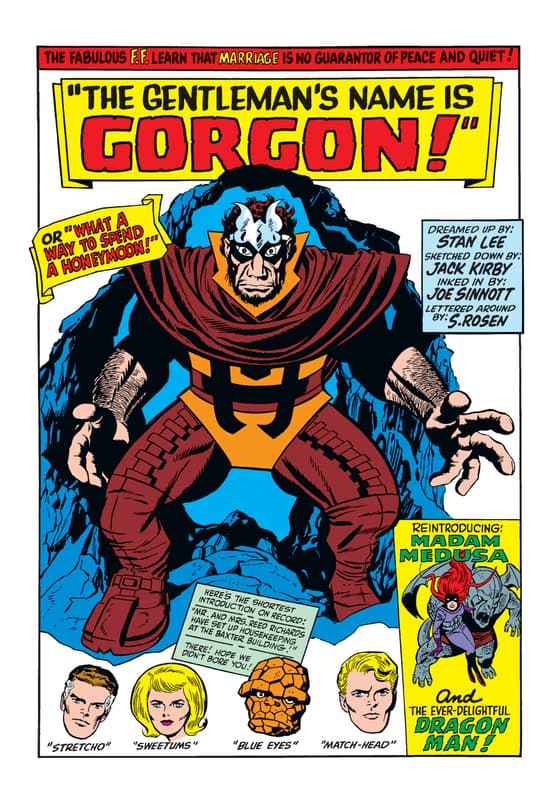
The FF helped the Inhumans, but were soon ambushed by a more dire threat in “The Coming of Galactus,” as the historic #48 was entitled. This was the first of what is known as the “Galactus Trilogy,” which became a high watermark for the FF’s saga. Galactus – or “the devourer of worlds” – was a huge being that fed on planets and was announced by a herald, the Silver Surfer, one of the most intense and best-loved Marvel characters. A noble, tortured, and almost Christ-like figure created by Kirby, who was also inspired by the rising trend of surfing in younger generations: that was the origin of the board he used to sail across the stars.
Silver Surfer was a fallen angel. A being who had sacrificed his existence to save his planet, Zann-La. Galactus had spared it, but in exchange, Norrin Radd (his true name) became his servant. It looked as if the Earth was doomed but the Silver Surfer turned against his master and helped the FF (and the Watcher) defeat Galactus. The Silver Surfer paid dearly for his rebellion, and was exiled to Earth by his former master, who had taken way his space-spanning powers. The humanity and tragedy of these characters left a permanent mark on the history of comics.
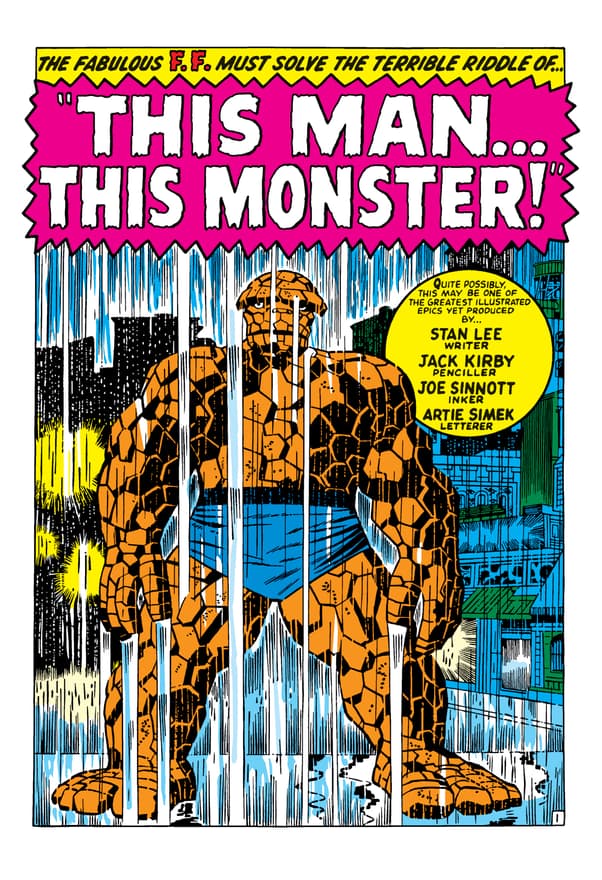
Issue #51, with its epic title “This Man… This Monster!” focused on Ben Grimm’s desire to be human again, and introduced a new, important supporting character: Native American Wyatt Wingfoot, Johnny’s friend in college. Wingfoot would become one of the protagonists of the next storyline. In this issue the FF travelled to the mysterious African country of Wakanda, which has become highly advanced and wealthy thanks to a metal called Vibranium. Many others wanted to get their hands on this rare metal for their own purposes, including the ruthless mercenary known as Klaw. The nation’s king was the majestic T’Challa, better known as the Black Panther, Lee and Kirby’s latest extraordinary character. Against the backdrop of the 1960s civil rights movement, Lee and Kirby created a groundbreaking new hero. The first Black Panther blazed the trail for subsequent heroes such as the Falcon and Luke Cage.
Black Panther, Wyatt, Klaw, the Inhumans, and Silver Surfer (whose friendship with Alicia made Ben intensely jealous) were the protagonists of the next run, in which Doctor Doom tricked the Surfer into trusting him and before stealing his powers, Reed had to talk to the world’s governments to warn them of the danger. After a long battle, the threat was finally over – but on his return from Latveria, Mr. Fantastic ended up in danger again. He was sucked into the Negative Zone, a parallel anti-matter dimension populated by monsters and other horrors, whose entry portal was found right in the Baxter Building. Almost killed by Blastaar the Living Bomb-Burst, he was eventually saved by Triton. However, there was no time for the FF to rest. In the following stories they took on more new villains, including the Kree Sentry and a mysterious organization of evil scientists called the Enclave. The latter group had created a perfect being known as Him who, like Silver Surfer, was a hybrid of mythology and philosophy (who later became the golden, god-like Adam Warlock).
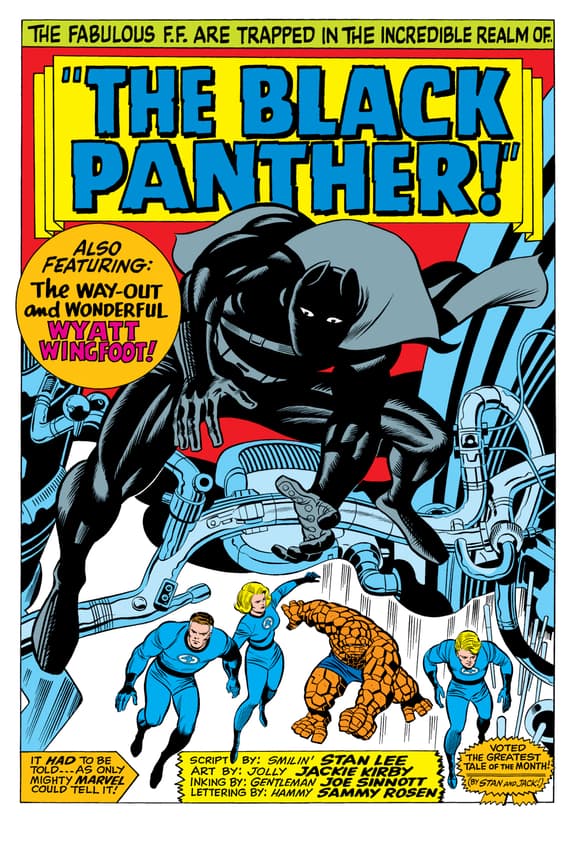
FANTASTIC FOUR: THE FIRST 60 YEARS is on sale now at Amazon, Barnes & Noble, Books-A-Million and wherever books are sold.
Purchase your copy today and experience the enduring legacy of FANTASTIC FOUR, Marvel's first Super Heroes, Marvel's first family and the Marvel Universe!
The Hype Box
Can’t-miss news and updates from across the Marvel Universe!

